Rafah, the horror of closed border crossings

This silence is broken by the bombs. The Rafah crossing, the border point between Egypt and Palestine, is deserted, as is the road that leads from Al-Arish to there. No one enters the crossing, no one leaves. It is Sunday morning, on the other side a war rages and compresses the air.
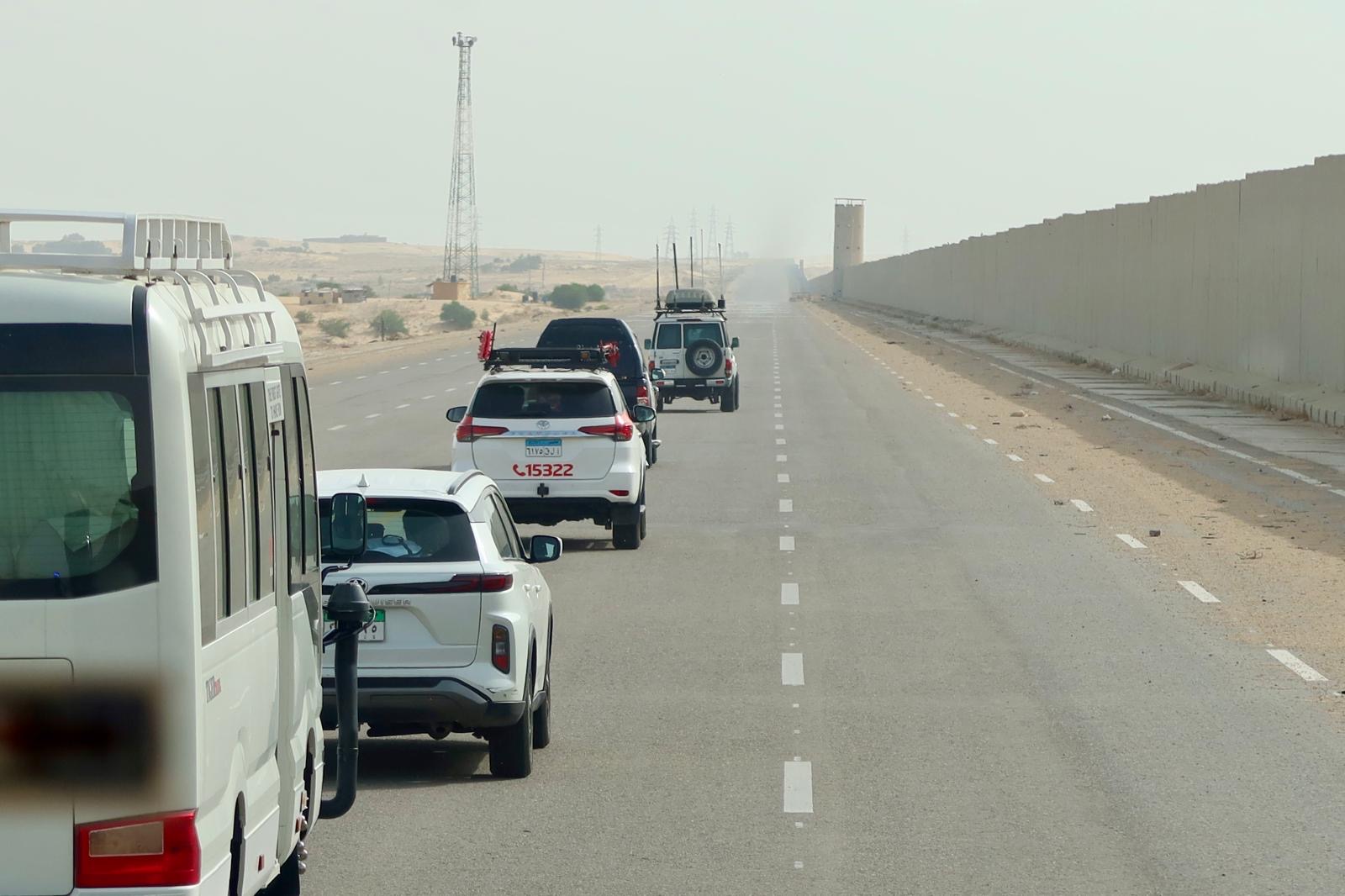
The mission of the delegation “ Gaza beyond the border ” (we have reported it here “ Towards the Rafah crossing, Palestinians are not alone ” and here “ The solidarity caravan from Al-Arish: «Whoever remains silent on Gaza is an accomplice »”, promoted by Aoi (with Acli, Ipsia, Un Ponte Per, Arcs, Ciss, Oxfam Italia, Acs, Cric, EducAid, Vento di Terra), Arci and Assopace Palestina and composed of 11 Italian parliamentarians belonging to the Intergroup for peace between Israel and Palestine, 3 MEPs, 13 journalists, academics, experts in international law and cooperation, has reached the Rafah crossing. And it did so to shout together: “Stop the illegal occupation”, “Stop the genocide”, to say “no to the militarization of aid”, “enough apartheid”, “no impunity for international crimes”, “stop weapons to Israel”, but above all “enough complicity”. Yes, because if the horror took shape and body inside the Gaza Strip, it did so with the certainty of the support of the silence of a large part of the international community . And so, along with those signs, at the Rafah crossing, activists, politicians, jurists also raised photographs with the faces of European leaders.
Israel bombs everything and everyone. All are more than 53 thousand people, including 430 humanitarian workers, 1,400 health workers and 220 journalists. Twenty thousand of these "all" are children . It is for them that the entrance to the Crossing was filled with dolls, games, and dresses.
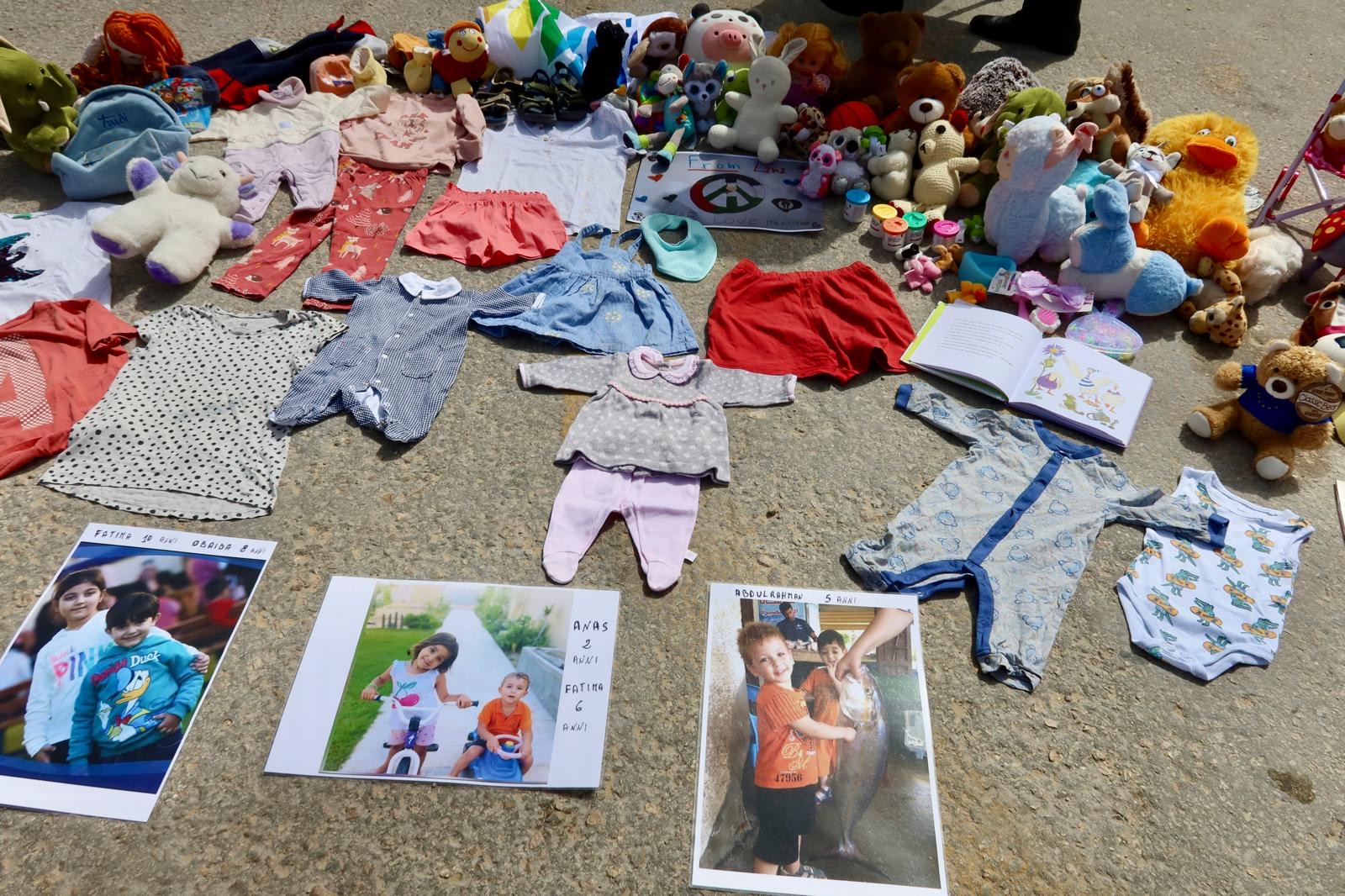
Yousef kneels down and with a piece of white chalk traces the outline of the T-shirts and baby onesies on the asphalt. While he does so, he cries. He is 43 years old, he works with the NGO EducAid, an Italian organization that for more than 20 years has been working in the field of education, psychosocial support and the promotion of the rights of the most vulnerable in various countries of the South of the world, including the Gaza Strip.
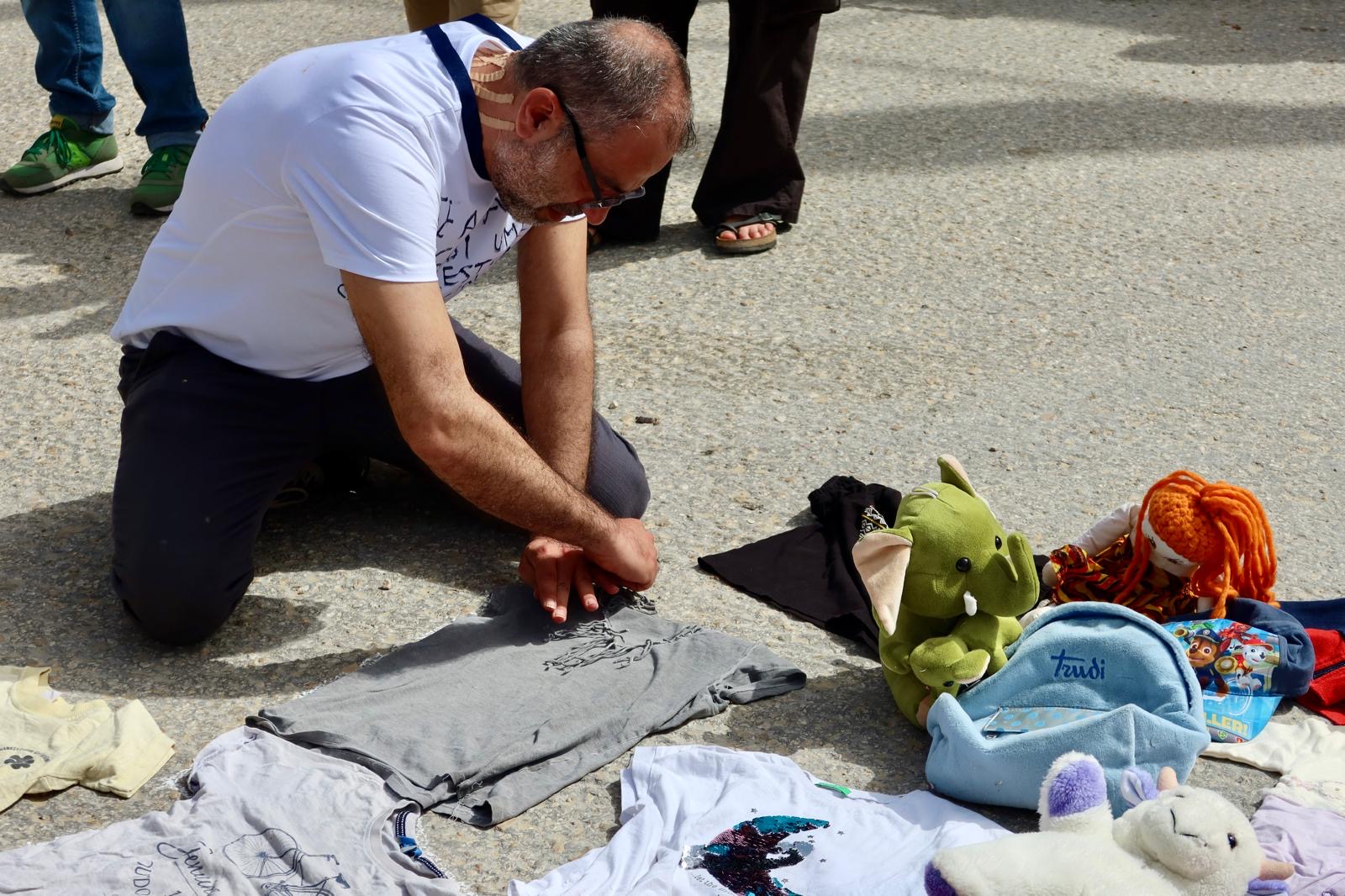
" I was born in a very poor neighborhood of Gaza City, I never knew my father. My parents were refugees from the Nakba. I come from a family with 12 children, my brothers and sisters are behind that crossing ." He lived through the first intifada, the second, the occupation. He left the Strip a few days before October 7, 2023 "by pure chance," he says. In the Gaza Strip he was the director of the EducAid center for disabled people. Now, with his back to Egypt, he looks at the crossing and thinks of them, of the family left inside and "of my 30 colleagues, all people with disabilities who, without any more means, help the most fragile of the fragile." Yousef almost always has a lit cigarette in his hands, he is tired. What Israel is doing in Gaza he calls an "experiment in violent social engineering" because "it wants to demonstrate that it is not the law that determines the future of peoples, it is only force that decides. We are here and in an hour two million people may no longer exist. Two million people who count on us. If the law dies, if it is trampled upon, then nothing exists. We are called to defend our humanity. What is happening today in Gaza represents a crucial moment in Palestinian history, and perhaps also in modern history in general. An experiment conducted on an entire people, within their own land (with no way out) and under the rule of occupation. The current chaos is not a side effect, but an integral part of a project aimed at destroying Palestinian society from within, to then rebuild it either as a body without a soul , or as a people willing to accept (sur)viving without any political perspective and without rights. Hunger is not only an instrument of submission, but a process of “inner fracture” that destroys the cohesion of individual identity and of society as a whole — and this is precisely where the danger of hunger lies: it is no coincidence that the starvation of the civilian population is considered a war crime. In the case of the Gaza Strip, it represents a tool to provoke a “forced perceptual change” within communities, shifting their focus and priorities: from thinking about collective liberation, to thinking about individual survival at any cost ".
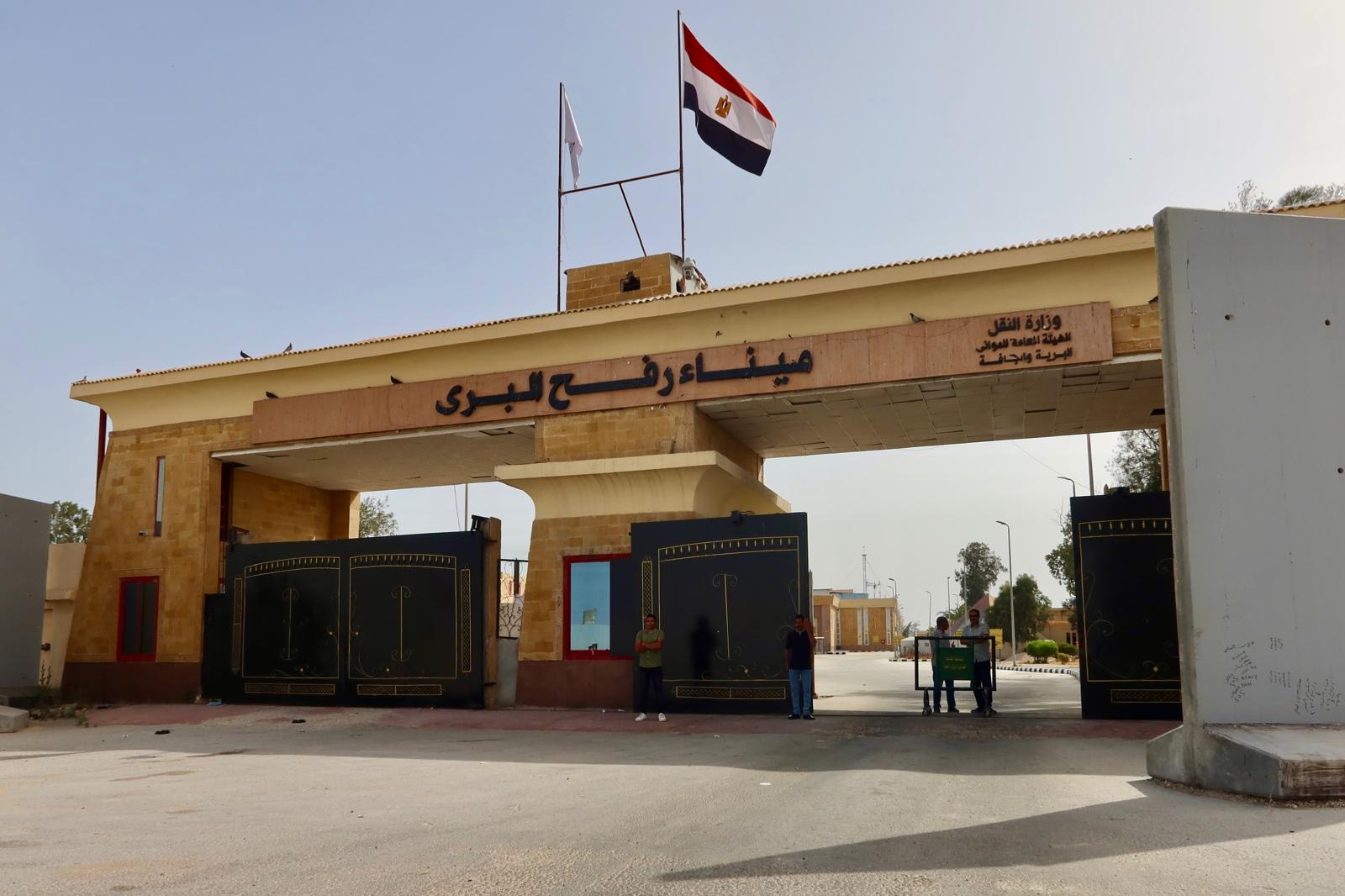
International law experts Alessandra Annoni, Micaela Frulli and Triestino Mariniello also participated in the caravan: «With the Convention against Genocide», they explained, «the world said 'Never again' and this should also apply to the Palestinians. The Palestinians are not an exception, the Palestinians have the right to dignity, human rights and justice. They will never accept deportation, despite the level of brutality of Israel being the highest ever, the Palestinians will not give up. We will not allow Gaza to become the tomb of international law ».
This is the second time that the Italian solidarity caravan has arrived at the Rafah border crossing : «Last year we asked for a ceasefire, and we are still waiting for it», explains Ilaria Masieri of Aoi, «and for more humanitarian aid to enter. But there was a red line that the international community had drawn: no to the invasion of Rafah. A line that was crossed almost a year ago and no one did anything. And so we are also here to ask our institutions to act because inaction is complicity , because those who remain silent are complicit». The caravan also wants to send another message: «The lack of a political vision is destroying everything that was built after the Second World War, which essentially means that today human rights are only valid if you are white and Western. We are also here because we want to build a path that broadens the vision on the military offensive, on the occupation, on apartheid, on genocide. We are on the threshold of the annexation of the Strip, of a new displacement of the population and probably of its deportation out of Palestine. Hearing our Foreign Minister Tajani say that what needs to be done is to increase the entry of humanitarian aid means denying that the issue is also political, not just humanitarian. In Gaza there is no famine due to climatic reasons or natural disasters, in Gaza hunger has been intentionally used as a weapon since the beginning of the offensive ". In recent months the bar of horror has been raised: "They are thinking of building military hubs that would be responsible for the distribution of aid, so as to recall the population towards the South through the need for food, substantially limiting all the operations of the United Nations and international organizations. And this means that, through the use of hunger, or the blackmail of hunger, the population is forced to leave their land. And once Gaza has been conquered they will start with the West Bank".
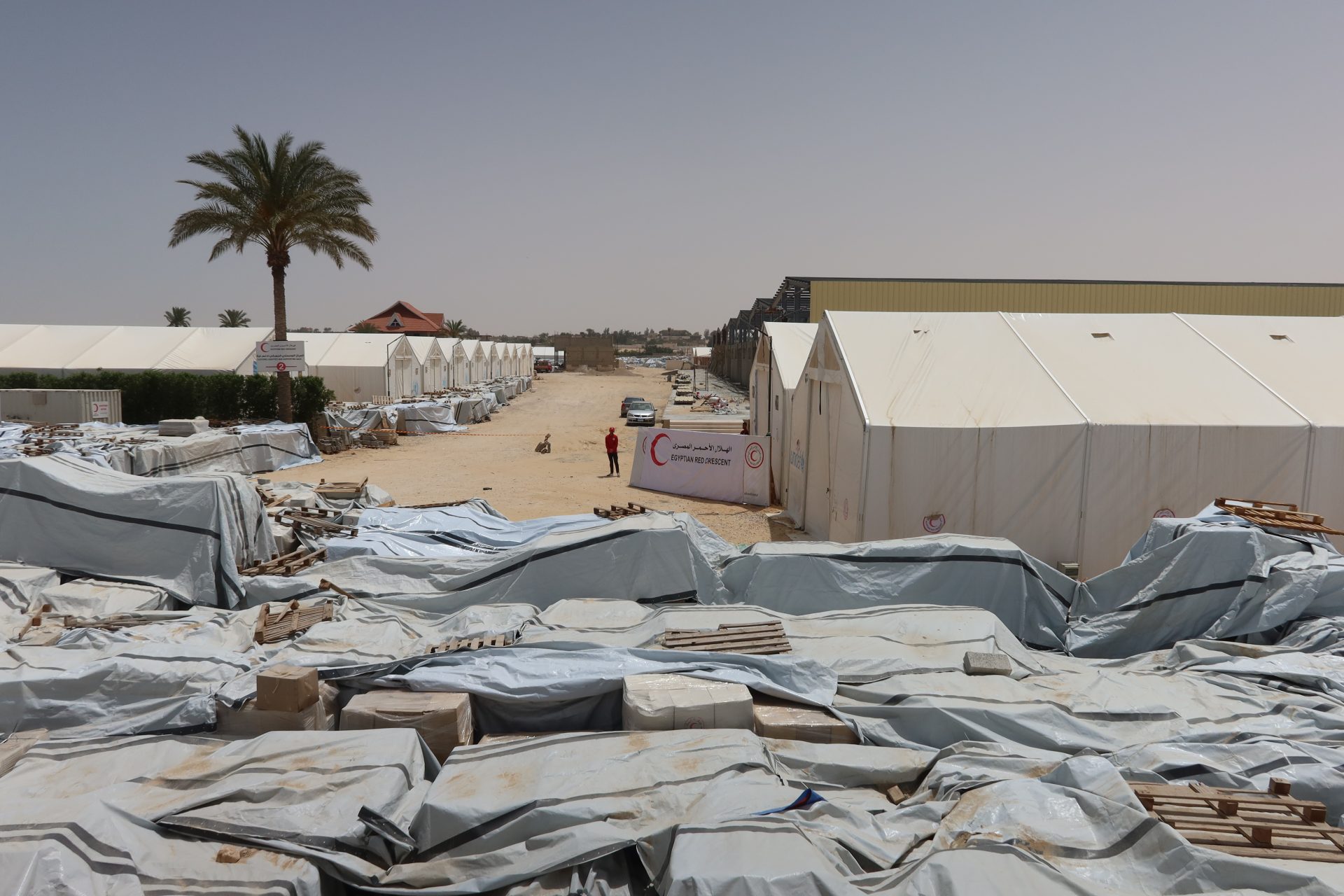
The goal of the caravan was to enter Gaza to help break the silence on the extermination of the Palestinian people, facilitate the entry of humanitarian aid and collect first-hand accounts. "But that gate remained barred," say the caravan participants. " European governments have turned a blind eye . This silence is a historical, political and moral responsibility ." Water, food and medicines also remain outside. Tons of humanitarian aid are stuck in the two warehouses of the Egyptian Red Crescent near the crossing, two structures measuring 30,000 and 50,000 square metres. "Even before the blockade," says Lotfy s. Gheith, head of operations and strategic communications for the Egyptian Red Crescent, in front of the crossing , "the aid we managed to get through was not enough for two million people. It was a drop in the ocean compared to the needs the population was expressing." But he is keen to say: "We are ready to transport aid; the total blockade is Israel's will."
Just over a euro a week, a coffee at the bar or maybe less. 60 euros a year for all VITA content, online articles without advertising, magazines, newsletters, podcasts, infographics and digital books. But above all to help us tell the social story with ever greater strength and incisiveness.
Vita.it





